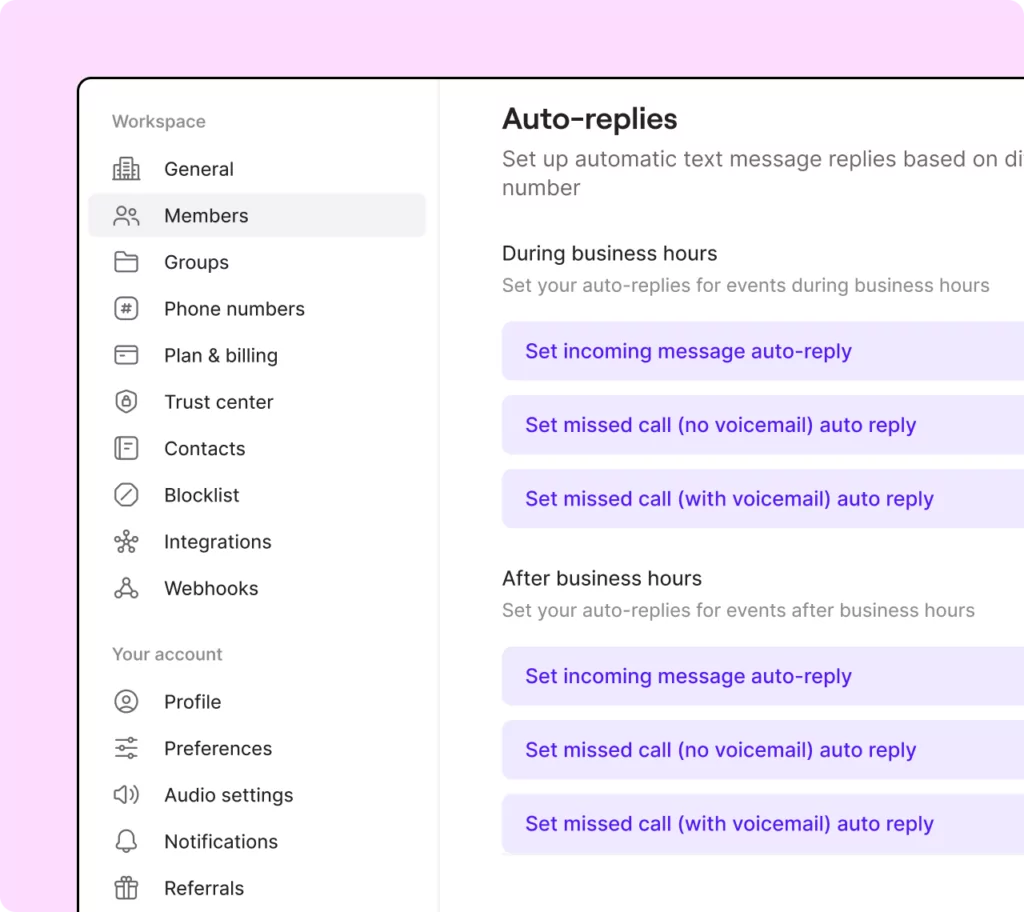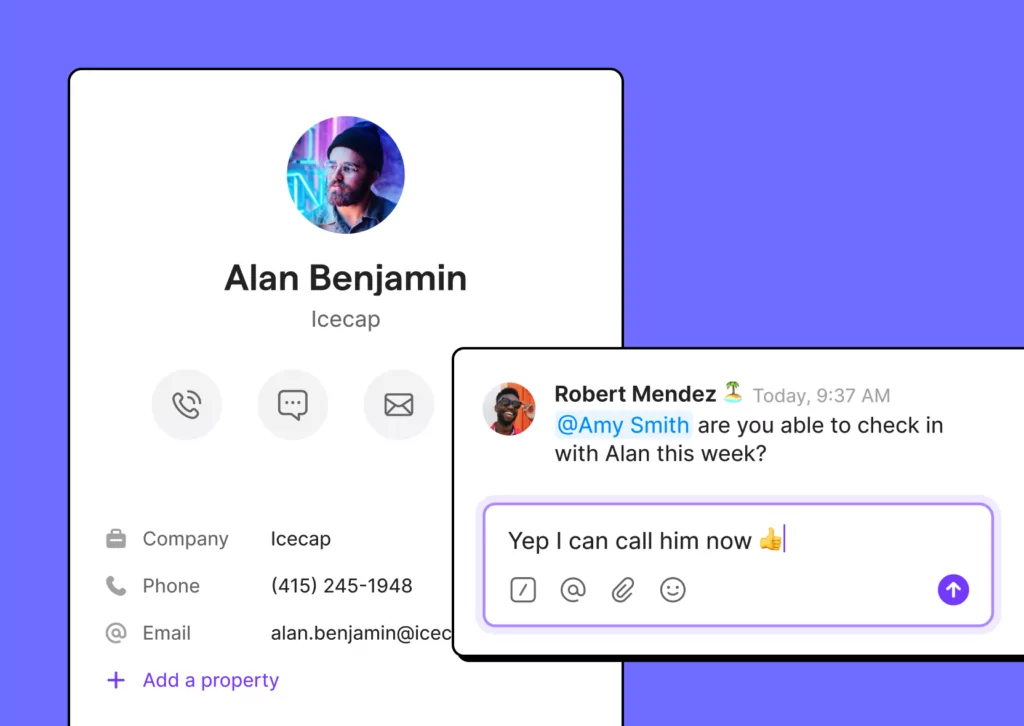As a landlord, you know building trust and supporting renters by effectively communicating with them can transform one-off tenants into long-term residents. And since long-term residents provide solid revenue streams that let investors and other groups show you can manage efficiently, good communication opens the door (pun intended) to expanding your property portfolio.
But effective communication (especially at scale) is easier said than done. That’s why we put our best tips in an easy-to-remember framework with a little help from the experts:
- Ryan Nelson, founder and CEO of Rental Real Estate
- John Tweedie, Regional Property Manager at CLV Group
Now, here’s everything you should know about the CAREPAK method.
1. Communicate policies regularly to avoid misunderstandings
Misunderstandings are a part of life, especially when it comes to interacting with tenants. By setting clear expectations in a timely manner, you can stop most uncomfortable situations and ensure residents follow their rental agreements.
The best way to avoid lease violations out of ignorance (or feigned ignorance) is to send regular reminders across different communication channels.
These include:
- Phone calls
- Texts
- Direct messages via a tenant portal
You should avoid the temptation to make reminders one-way messages. By encouraging your residents to respond with questions and comments, you ensure they don’t miss essential information.
“I send monthly emails highlighting just one or two topics that may need reinforcement, keeping the tone casual,” Ryan Nelson, founder and CEO of Rental Real Estate, says. “For example, ‘Friendly parking reminders!’ followed by a brief blurb. More serious policies get reminded every six months.”
It’s also a good idea to save email/text templates to speed up response times and reduce repetitive tasks. Messages you send regularly — like rent reminders or repair requests — work well as templates.
For example, you could have a text snippet that looks like this:
This is a friendly reminder that [name] has a rent payment of [$0.00] due on [date]. If you have any questions, please contact [business] from [business hours].
Or this:
[Business name] has received your request for [maintenance issue]. We’ll send a technician to your location within 48 hours. Have questions? Call [number] to speak with the team.!
Get more templates to save time: 10+ most useful property management email templates
2. Address maintenance requests quickly and set realistic expectations
One of the top sources of tenant frustration is feeling like their landlord is unresponsive, especially when it comes to maintenance and repairs. More than 40% of tenants are unhappy with their rental maintenance — especially for urgent issues.
“We work to complete any urgent issues within 48 hours, and non-urgent within five to seven days,” Ryan says. “This established timeline and transparency in communication helps tenants feel heard and keeps high satisfaction levels.”
Ryan also says you should set up a tenant portal to help renters submit requests 24/7. Your tenant portal can then forward requests via email, reminding you to acknowledge receipt of the request as soon as you can. If you use Gmail, you can set up automatic reminders, so responding to tenant requests doesn’t fall by the wayside.

If you’re an OpenPhone user, you can send an auto-reply when tenants call or text your maintenance request number to create an immediate touchpoint.
Want to learn more about property management tools? Check out our review of the Best 11 multifamily property management software in 2024
3. Respectful conversations when violations happen
Part of being a property manager is dealing with violations, including occupancy limits, excessive noise, missed rent payments, and more. When tricky situations arise, how you de-escalate conflict can make or break a relationship with a tenant.
Here are some pointers for navigating violations from Ryan and John Tweedie, Regional Property Managers at CLV Group:
- Listen attentively: “I listen without interrupting to understand their perspective.” – Ryan
- Recognize the emotions they’re conveying: “Acknowledge their feelings, and then calmly explain how the action violated our agreement and why certain policies are in place.” – Ryan
- Explain the violation and refer to the lease agreement: “Referring to legitimate documents [such as the tenancy agreement] can help remind them of the issue at hand.” – John
- Negotiate if possible: “Compromise when possible, but uphold the standards respectfully. A friendly demeanor helps diffuse tensions, so we can resolve [sensitive issues] cooperatively.” – Ryan
- Uphold standards: “[Help them see this] is a violation of the agreement they signed when they chose to rent with us.” – John

Pro tip: Keep a record of violations
It’s a good idea to keep track of policy infringements to cover all your legal bases. You could do this in a spreadsheet or in your tenant portal.
If you’re an OpenPhone customer, you can streamline this process with custom contact notes to keep track of which tenants are incurring violations. If legal disputes come up, you can also reference records of all call recordings, text messages, and voicemails. Business plan users also have access to call transcripts so they can easily review specific recorded conversations.
4. Explain disruptions and policy changes in advance
It’s your responsibility to give tenants a heads-up about property maintenance or policy changes. Tenants get frustrated when problems arise without warning (wouldn’t you?), so it’s a good idea to pick the right method of communication to keep them informed.
Unsurprisingly, studies show 48% of tenants prefer communicating over text, while 28% prefer email.
So unless the context of your message contains things like evictions or rent increases, text is a great choice for keeping tenants informed. If your property management company oversees several hundred doors, your best bet is sending text messages to multiple recipients through a business phone platform like OpenPhone. For example, you may have to shut off everyone’s water during an emergency. And they may not check their email before angrily calling you.
5. Periodically check in to show you care
Landlord/tenant communication goes beyond rent reminders and maintenance requests. If you only reach out to tenants around lease signing and renewal time, they may feel like you see them as just a number.
A better strategy for customer relations is keeping communication consistent. This includes periodic check-ins where you see how residents are doing.
“Our property management software schedules recurring virtual “meetings” where I can easily connect with all tenants face-to-face quarterly to keep communication lines open,” Ryan says.
Want other tips for checking in with tenants? Consider ideas like:
- On-site events and gatherings. Block parties and neighborhood BBQs offer perfect environments for free-flowing conversation.
- Posting on social media. This sometimes invites less-than-positive responses, but you can use it as an opportunity to clear the air or set the record straight.
- Engaging through text. If you don’t have the time (or tech) for video meetings, there’s nothing wrong with checking in over text.
- Visiting the property throughout the month. This allows you to check the exterior of the building and chat with residents face-to-face.
6. Automate tasks to help the business scale
One of the biggest steps you can take to unlock managing more rental properties is utilizing more automations. The trick is knowing which apps to choose so you can consolidate your tech stack and keep costs low.
“Property management software automates routine tasks like automated late fee and rent reminders, electronic lease signing, and maintenance requests, which streamline processes,” Ryan says. “I can manage scattered properties from anywhere rather than sorting through piles of paper. It frees up my time to focus on more strategic tasks like capital improvements, community events, and individual tenant issues.”
Similarly, John uses landlord apps to boost his business’s efficiency.
“[Landlord software] eliminates so many back-and-forth calls or emails,” he says. “This allows us to save those more personal touchpoints for resident engagement and events – the fun stuff!”
7. Kind gestures to build a sense of community
Good communication means clearly delivering a message. Great communication involves adding a layer of kindness. That’s why successful landlords go above and beyond to communicate trust, appreciation, and gratitude to renters.
“I like to hand write heartfelt thank-you notes for tenants around the holidays to let them know how much I appreciate them,” Ryan says. “I also like giving small gift cards to those who consistently pay rent on time for every year they’ve lived with us.”
Let’s not ignore the elephant in the room: time restrictions are a major obstacle here. Many landlords would love to send customized texts — they simply don’t have time to write them at scale.
Here’s another advantage of a business phone system like OpenPhone: you can send personalized messages without typing them out individually. You can use snippets to store hundreds of templates ready to use when you need them. Then include a placeholder in the template to personalize each text.
Hey [tenant’s name], just a quick note to say thanks for being an awesome tenant! Your prompt rent payments and neighborly vibes really make a difference. We’re hosting a community BBQ on [date] at [time], and you’re invited! It’ll be great to hang out and enjoy some good food together. Hope to see you there!
Want other ideas for building community? Try holiday bonfires and lease discounts for referrals.
“We have partnered with local businesses to offer discounts or special deals for those who rent in our communities,” says John. “For larger in-person events, we typically like to celebrate major holidays with anything from movie nights to barbecues. A little goes a long way in making a resident feel like they are part of a real community, and that is always our goal.”
Make tenant communication a breeze with OpenPhone
Communication is the backbone of a successful property management company. After all, building better relationships with your tenants means building a better foundation for your business.
OpenPhone and other tools make it easy to strengthen this foundation as you grow. Whether managing two doors or 200, a solid tech stack can help you scale with fewer growing pains.
Curious to see what this looks like in action?
Learn more about the most useful landlord apps for managing tenants and contractors.
